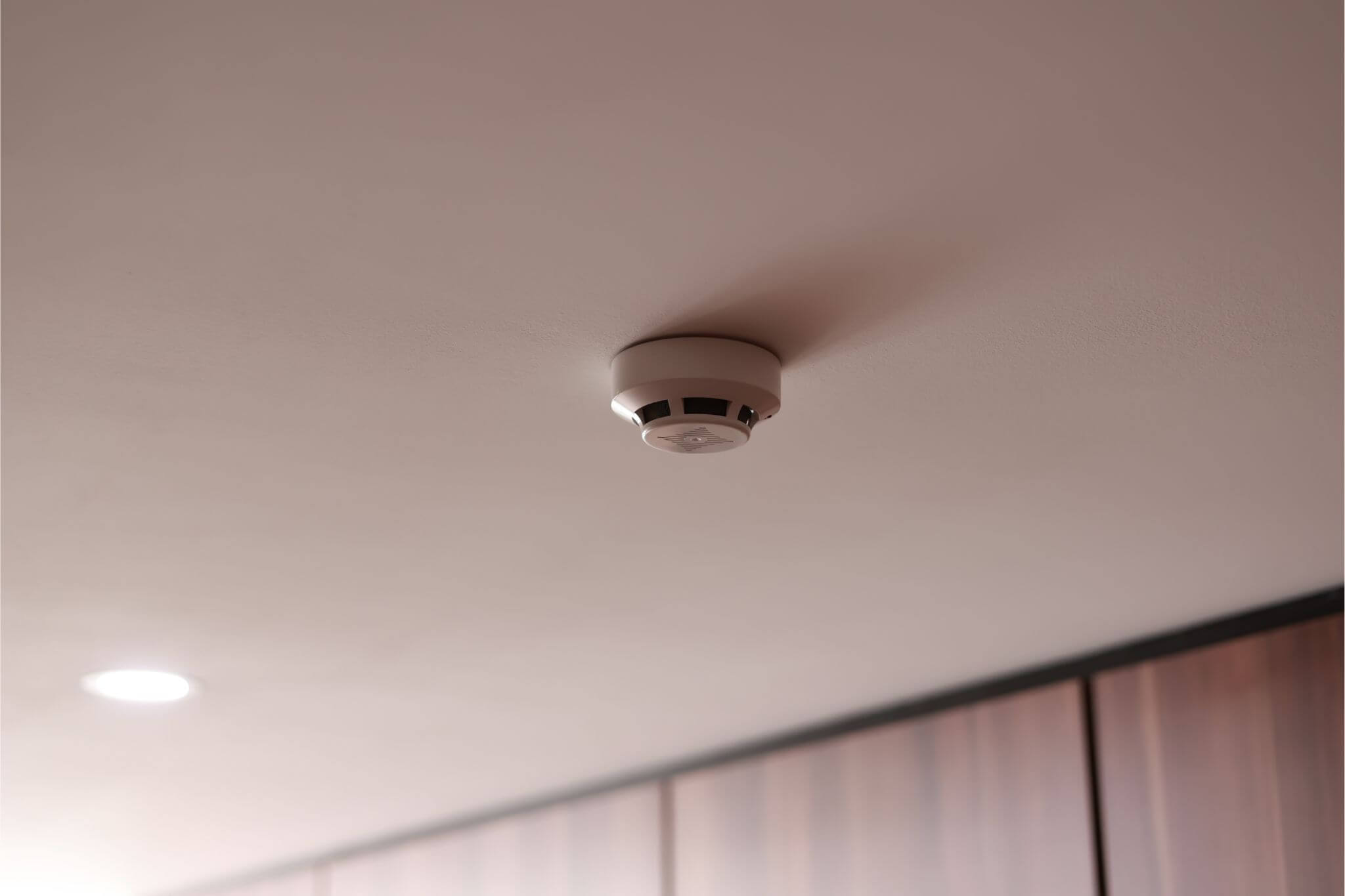Fire can occur anywhere at any time and can have potentially devastating the consequences for everyone involved, resulting in the loss of property, equipment, inventory, personal belongings and worst of all causing injuries or even fatalities.
This is why at T2 Fire, our expert fire safety consultants have put together our top 10 fire safety tips that everyone should know, along with helpful guidance and advice to protect your home and workplace.
1) Install Smoke Detectors and Fire Alarms
One of the most essential fire protection devices, smoke detectors and fire alarms should be on every level of the property where they will act as the first line of defence against fire. This early warning system will provide the precious time needed for family or coworkers to safely evacuate the premises. It is recommended that they be tested on a regular basis, ideally every month to ensure that they are functioning correctly and have their batteries changed once a year.
2) Safe Cooking
Around 50% of home fires are cooking or kitchen related so this is an area where extra care should be taken. Be sure to always follow safe cooking practices including things like;
– Never leave cooking unattended
– Keep cooking areas free from grease
– Ensure flammable objects such as kitchen roll and towels are away from heat sources
– Check that all appliances are turned off after cooking
– Never leave children alone where food is being prepared
3) Perform a Fire Risk Assessment
These are extremely helpful in any type of premises but are a legal requirement for all properties that aren’t a single private dwelling. A fire risk assessment can help to identify potential risks and make recommendations on how they can be controlled or eliminated to ensure a safer, compliant property.
4) Electrical Safety
A significant number of fires are caused by electrical faults so knowing how to prevent and respond to electrical fires is crucial.
Prevention
– Ensure that electrical installations and appliances are properly checked and maintained
– Use appliances according to manufacturer instructions
– Never overload power outlets or extension leads
– Inspect cords for damage, fraying or signs of overheating
– Avoid running leads under carpets
Respond
– In the event of fire cut power immediately if safe
– Use a suitable fire extinguisher to tackle the fire
– Never throw water on an electrical fire
5) Create an Escape Plan
Having an effective escape plan in place can prove invaluable in the event of an emergency. Be sure that the plans include not only the normal way out as an escape route but alternative options if that way is blocked by fire. This plan will also need to take into account the various needs of occupants such as children, the elderly or disabled.
6) Beware of Open Flames
A crackling fireplace or the soft glow of candlelight is naturally appealing for many people but poses a serious fire hazard if not properly handled.
– Candles must always be placed in sturdy holders that can’t tip over or melt
– Keep candles away from flammable materials such as curtains, blinds, books etc
– Never leave candles or fires unattended
– Always extinguish candles or fires before leaving the house or going to bed
– Fireplaces should have a suitable screen in place to prevent embers from escaping
7) Fire Safety Training
Knowledge can go a long way to helping prevent fires from occurring and teaching proper fire safety to family members or employees helps to create a responsible fire safety environment. Fire safety training helps to educate people about potential fire hazards, safe evacuation procedures and effective responses.
8) Safe Smoking Practices
Smoking presents a significant risk of fire so it’s important to always be extra safe;
– Don’t smoke indoors
– Always fully extinguish cigarettes
– Dispose of cigarettes in an ashtray or suitable container
– Never smoke near flammable materials
– Use ‘no smoking’ signs in prohibited areas
– Keep all smoking materials and paraphernalia out of reach of children
9) Fire Fighting Equipment
Having the right fire protection in place can make all the difference and help you to tackle small fires before they get out of hand and spread. Installing fire extinguishers best suited to the type of property and being trained on how to use them can prove to be invaluable if a fire breaks out.
10) Set an Example
Leading by example and educating others about fire safety practices can go a long way. Share your knowledge and let friends, coworkers, family and employees know how fire prevention works, what they can do to help and how to respond in the event of fire.
If you have any questions, want to find out more about fire safety London then please do not hesitate to get in touch and a member of our team will be happy to help.

